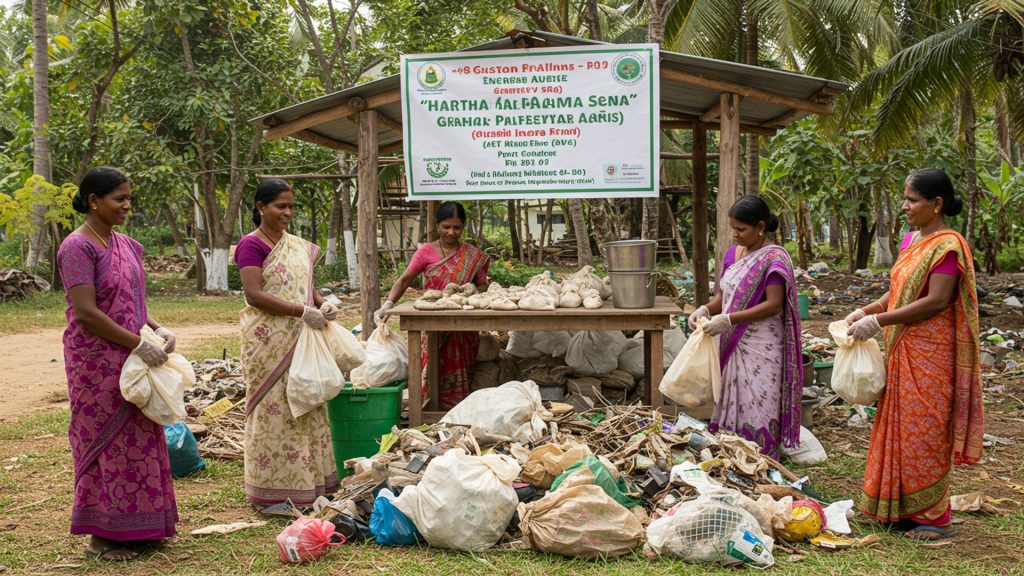Kerala just launched a major new plan to empower thousands of waste management workers across the state. This urgent initiative provides better tools, training. support to the people who pick up and sort trash every day. As cities expand and waste piles up, these workers are key to keeping Kerala clean and healthy. The new effort aims to improve their lives and make their vital jobs safer and more respected, tackling a big problem for the state’s future.
Kerala’s Big Step for Waste Workers
The state of Kerala has started a major effort to help people who work in waste management. This initiative aims to give these workers better jobs, more money. a safer work environment. The government sees waste management as a way to create jobs and improve the lives of many people, especially women. This new push builds on existing programs that have made Kerala a leader in managing waste. For many years, waste management has been a big challenge for Kerala because of its dense population and many cities. The state has been working to change how waste is handled, moving from old ways to a system where local communities and people are more involved. This shift is vital for keeping Kerala clean and healthy.
Who are the Haritha Karma Sena?
At the heart of Kerala’s waste management system is the ‘Haritha Karma Sena’, which means ‘Green Task Force’. These are trained groups of workers, mostly women, who collect and sort waste. The Haritha Karma Sena was started in 2017 as part of the Haritha Keralam Mission, a big project by the Kerala government to protect the environment. The Haritha Karma Sena works closely with local government bodies and the Kudumbashree Mission. Kudumbashree is a large organization of women’s self-help groups in Kerala, started in 1998 to help women and fight poverty. This connection means that the waste management effort also helps women gain independence and earn a living. The Haritha Karma Sena members visit homes and businesses to collect waste that cannot be easily broken down, like plastics. Currently, there are more than 36,000 Haritha Karma Sena workers in all local areas of Kerala. They are a professional team that includes ‘Green Technicians’ and ‘Green Supervisors’. These workers are responsible for collecting, moving, processing, reusing. throwing away waste materials, working hand-in-hand with local government groups.
How Workers Earn Money
The Haritha Karma Sena members earn money in several ways. A main source of income is the user fee collected from homes and businesses for picking up waste. For example, homes usually pay 50 rupees. shops or businesses pay 100 rupees. This fee helps make the waste collection service sustainable. In addition to user fees, workers also earn money by selling the sorted waste to the Clean Kerala Company, a government company that handles waste processing and recycling. This turns waste into a valuable resource, helping the workers earn more. For instance, in one area, Haritha Karma Sena earned over 2. 9 lakh rupees by giving collected waste to the Clean Kerala Company. Some members also earn a monthly income that can range from 8,500 rupees to 12,500 rupees. In some cases, members have earned up to 50,000 rupees a month. The government is also starting new projects to help Haritha Karma Sena members earn even more. For instance, an ‘Entrepreneurship Development Project’ has been launched to help them start small businesses related to waste. This includes making organic fertilizer, cloth bags, or trading scrap materials. This project aims to help about 7,000 Haritha Karma Sena members from 93 municipalities.
More Training and Support
To ensure the waste management workers can do their jobs well and safely, they receive training and support. This training covers crucial areas such as:
- How to sort different types of waste.
- How to identify materials that can be reused or are dangerous.
- Safety rules during collection and moving waste.
- How to run plastic shredding machines.
These trainings are given by organizations like Suchitwa Mission and Haritha Keralam Mission. Local government bodies also provide essential support to the Haritha Karma Sena. This includes giving them:
- Basic facilities for their work.
- Vehicles for collecting waste.
- Uniforms and identity cards.
They also arrange Material Collection Facilities (MCFs) where collected waste can be temporarily stored and further sorted. There are also plans to encourage these women to get driving licenses so they can drive the waste collection vehicles themselves.
Government and Community Working Together
The waste management initiative in Kerala is a result of many different groups working together. Key partners include:
- The Kerala Government.
- Local Self Governments (LSGs), which are local village and city councils.
- Kudumbashree Mission, the women’s self-help group organization.
- Haritha Keralam Mission, the state’s environmental project.
- Suchitwa Mission, which helps with sanitation.
- Clean Kerala Company, which handles waste processing and recycling.
The Kerala Solid Waste Management Project (KSWMP) is a large state and urban local body effort, supported by the World Bank. This project focuses on making waste management systems stronger in all 93 urban local bodies of Kerala. The success of these programs also depends on public participation. Haritha Karma Sena members often visit homes to educate people on how to separate their waste correctly, helping to create a cleaner environment. Campaigns like ‘Vruthi’ also aim to raise awareness and encourage people to take responsibility for their waste, promoting a long-term change in habits.
Making Kerala Cleaner
The work of the Haritha Karma Sena and related programs has had a big impact on keeping Kerala clean. They have greatly reduced waste being dumped in public places and water bodies. The sorted plastics are often used for road construction, turning waste into useful materials. By collecting waste from homes and businesses, these initiatives are helping to prevent pollution and improve public health. The goal is to make Kerala a “garbage-free” state. The focus on collecting non-biodegradable waste and recycling it plays a vital role in this larger vision.
Looking to the Future
Kerala continues to push for better waste management. The ‘Malinya Muktha Nava Keralam’ (Waste Free Modern Kerala) campaign aims to achieve zero waste in the state by 2024 through various actions like waste sorting at the source and stopping public waste dumping. The ongoing Kerala Solid Waste Management Project (KSWMP), with a budget of 2,400 crore rupees, is focused on building modern waste management systems across urban areas. This includes setting up better facilities for collecting and processing waste. The state is also working to encourage private companies to participate in scientific waste management. The focus remains on making waste management a source of jobs and income, while ensuring a cleaner and healthier Kerala for everyone.

